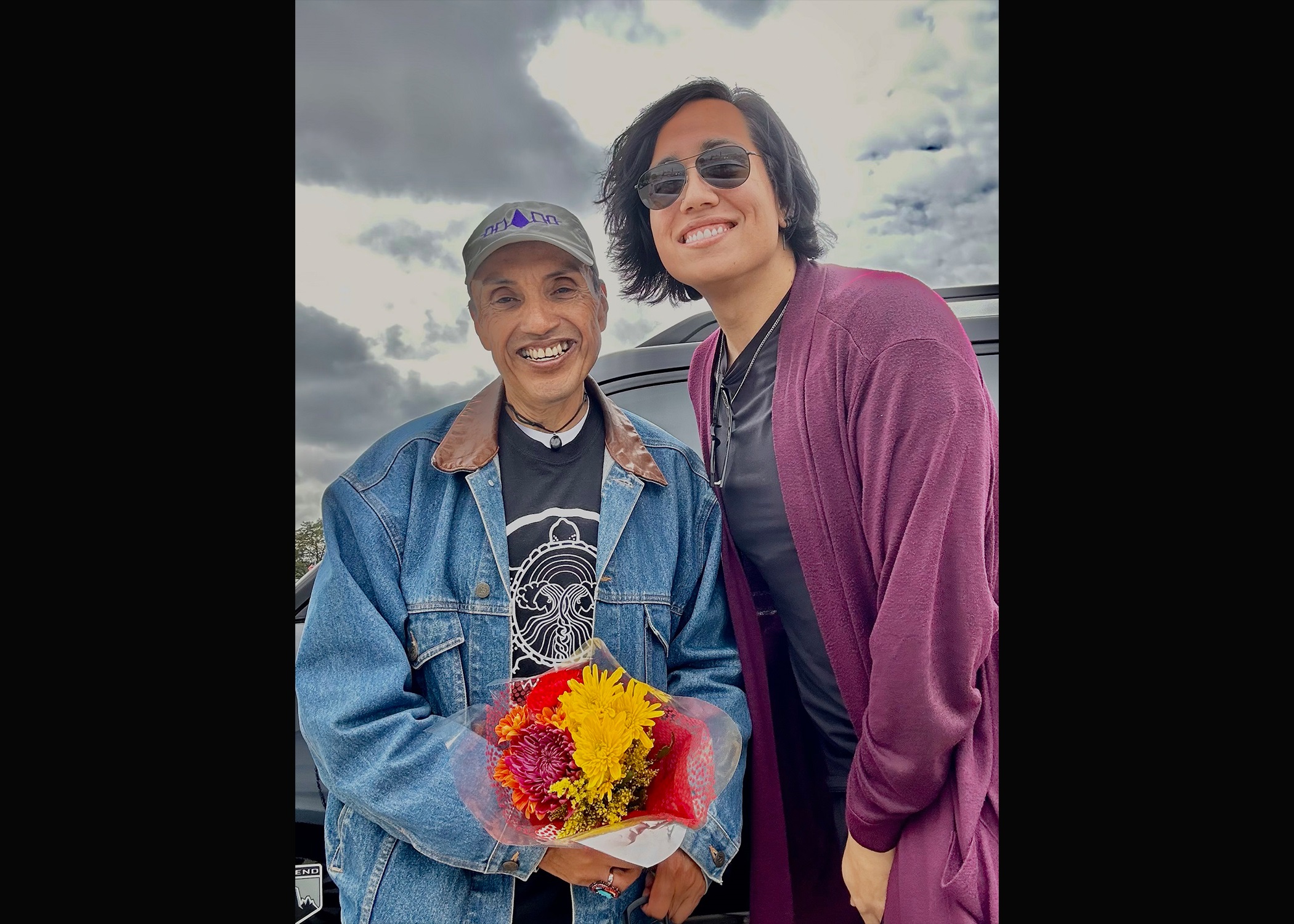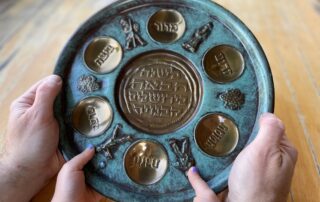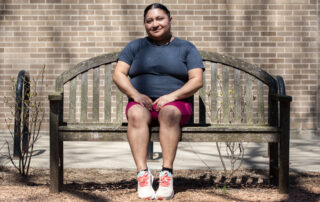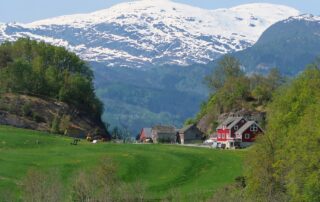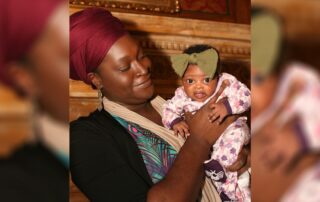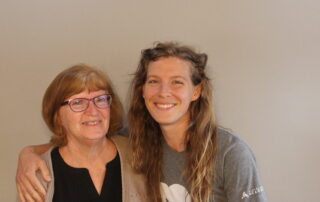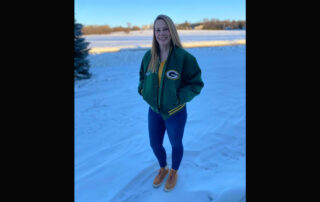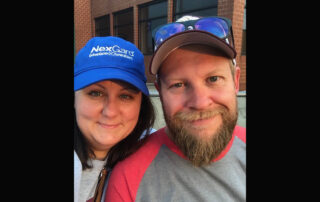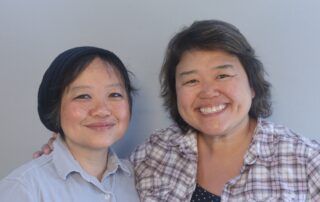While Joseph Rey Torres of Oneida was on his path of self-discovery, something finally clicked for him. He realized he was two-spirit, which for him, meant embracing masculine and feminine identities. Torres talked about this with his adopted nephew and mentee Cory Carline of Green Bay during a StoryCorps Mobile Tour Stop in Green Bay, Wisconsin.
(The following excerpt has been edited for brevity and clarity)
==
Cory Carline: My name is Cory. I am 33-years-old. I am an Indigenous Mexican student and doctoral candidate at the University of Wisconsin-Green Bay.
Joseph Rey Torres: My name is Joseph, age 58. I’m a recent graduate from UWGB. I graduated with a double major in First Nations Studies and Business Administration. I am also Indigenous and Mexican. I identify as a proud two-spirit gay man as well.
CC: When you were growing up, what did your Indigenous identities mean to you?
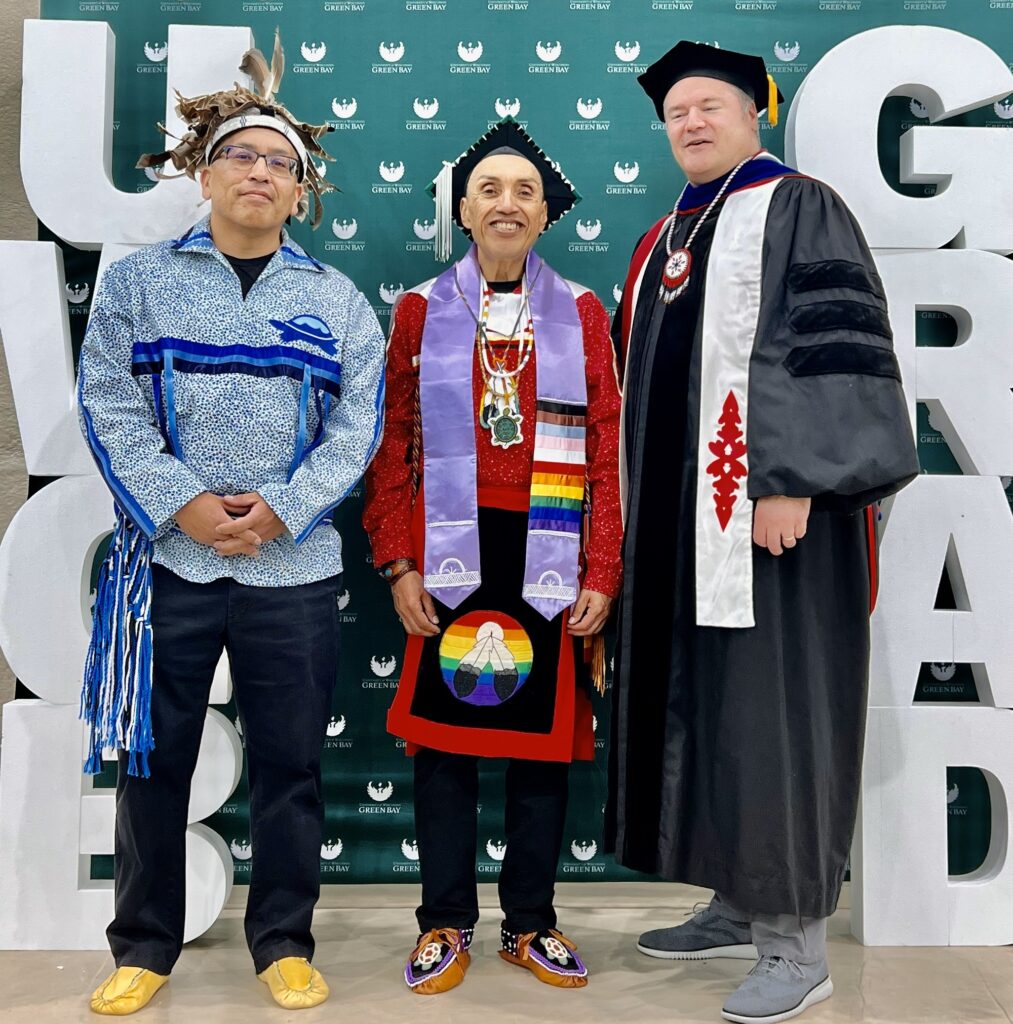
Joseph Rey Torres (center) at his UW-Green Bay graduation ceremony in May 2023. He’s surrounded by UWGB professor Forrest Brooks (l) and professor J P Leary (r). (Courtesy of Joseph Rey Torres)
JRT: My mom, she went to a mission school and so I was raised very Christian. My dad was Mexican and Pueblo from Dallas, Texas. Because they both dealt with so much racism, even though my mom spoke full blooded Oneida, she never spoke it to us. And my dad, whose first language was Spanish, would not speak it to us.
They were both very loving, hard-working parents but at the same time, I look back and I feel a little bit cheated. Not because of anything they did, just because of what they went through. They didn’t want us kids to go through that. But I guess I saw other Oneidas and I knew I was Oneida, but I didn’t really know what it meant until years later.
CC: What do these identities mean to you now?
JRT: Well, they help me keep grounded. They help give me self-confidence. They let me know that I have a place in society.
You know, coming out was very hard. My family took it really well. And my mom, of course, being Christian, was the one that had the hardest time dealing with that. I was really close to my mom. But because of her Christianity, her response was, “Believe in the power of prayer.”
One of the best gifts I ever received, a friend gave me a book by Walter Williams called “The Spirit and the Flesh: Sexual Diversity in American Indian Culture.” And that really empowered me.
It gave me an identity that, more than anything, confirmed that a long time ago — before Europeans, Christianity, colonization — two-spirit people were revered. It was believed we were given special gifts. We were given very high roles in our society. There was no such thing as coming out. It just was. It was believed that the creator made us and it was also considered to be gifted because we could understand both the masculine and the feminine side of things. And a lot of times when kids were left orphaned, they were given to a two-spirit individual because in Native American culture they thought, ‘Well, who better to raise a child than someone that has both a feminine and masculine energy, to be both the mother and the father.’
Then, just learning more about my culture, reading books on my own, and especially going to UWGB and majoring in First Nation Studies, I really learned a lot more about my Oneida culture specifically. It means a lot to me now. I’m proud to be Mexican, Pueblo, Oneida, two-spirit. I’m proud to be gay, proud to be everything that I am.
CC: I’ve had a life changing gift of your mentorship and advice for as long as I can remember.
JRT: Well, I’m very proud of you. You’ve come a long, long way.
CC: We’re all proud of you, too.
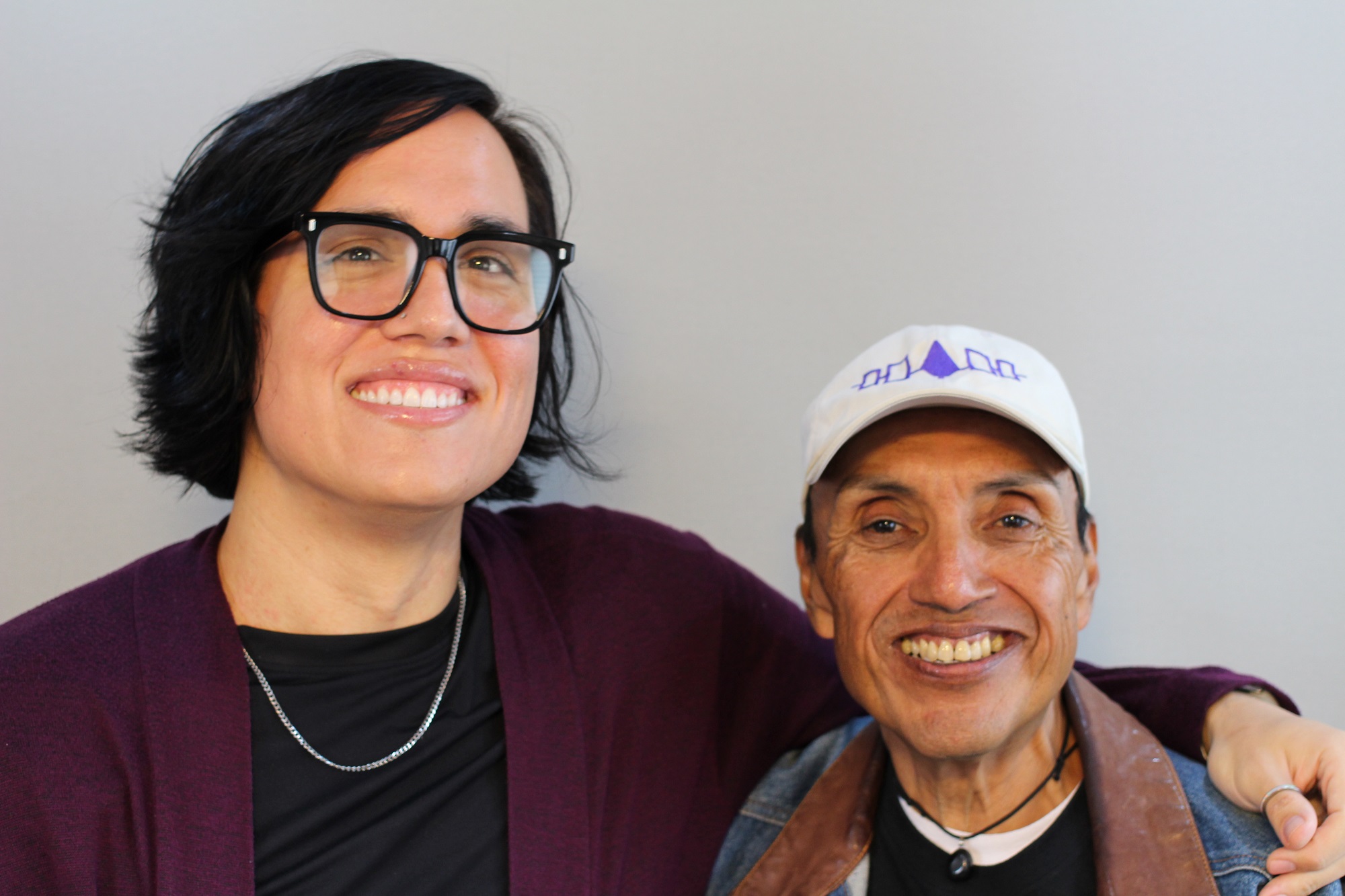
Cory Carline and Joseph Rey Torres recorded a conversation with one another at a StoryCorps Mobile Tour stop in Green Bay, Wis. on September 8, 2023. (Courtesy of StoryCorps)
This story came from an interview recorded at StoryCorps, a national initiative to record and collect stories of everyday people. During a StoryCorps Mobile Tour stop in Green Bay, Wisconsin from August 10 – September 8, 2023, 110 conversations were recorded and preserved. Excerpts were selected and produced by Wisconsin Public Radio staff.
Major support for the StoryCorps Mobile Tour is made possible by the Corporation for Public Broadcasting, in partnership with the American Folklife Center at the Library of Congress.
